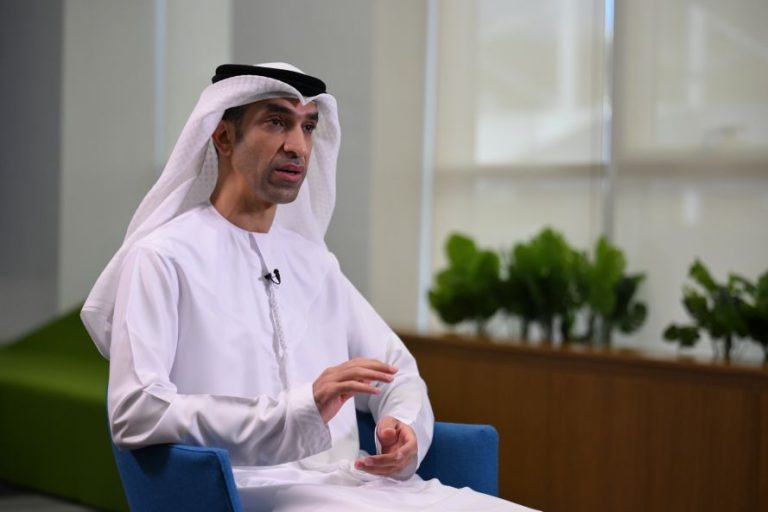Abu Dhabi – The 13th Ministerial Conference (MC13) of the World Trade Organization (WTO) began in Abu Dhabi this Monday. The event, which runs until February 29, brings together ministers and senior officials from around the world to discuss global trade. Brazil is represented by a delegation led by the Minister of Foreign Affairs, Mauro Viera.
Building on the discussions of MC12 in Geneva in June 2022, where significant progress was made in areas such as fisheries subsidies, food security, and e-commerce, MC13 focuses on improving the access of developing and least developed countries to the global trade system, intellectual property, and WTO dispute resolution mechanisms.
In an interview with the Emirates News Agency (WAM), Thani Al Zeyoudi, the UAE Minister of Foreign Trade and President of MC13, stated that the topics discussed are of utmost importance to Brazil. “The success of the conference has been constantly mentioned in recent weeks during engagements and discussions with the Brazilians, and agriculture is another crucial topic, as they are one of the main food suppliers to the world,” said the minister.
Al Zeyoudi plans to establish a connection with Brazil beyond the 13th WTO Ministerial Meeting, focusing on the G20 summit – a forum that brings together the world’s major industrialized and emerging countries. The summit of the bloc will take place in Rio de Janeiro from November 18th to 19th. “I want to ensure that all these agendas are reflected in the G20, advancing in the interest of everyone, not just Brazil. We hope that Brazil plays a significant role in agriculture so that we can advance with what has not progressed in the last 20 years and ensure the success of the topic, which will contribute to the success of the G20 later this year in Brazil. We are coordinating with the Brazilians and will continue to ensure that the results from here feed into the results we hope to see in the G20,” expressed the UAE Minister of Foreign Trade.
Multilateral System
For the President of MC13, the meeting is taking place “in a very geopolitized period, where tension, especially regarding trade measures taken last year, is almost reaching its peak compared to the past.” To address this scenario, Thani Al Zeyoudi said that the focus must be on the multilateral trade system. Therefore, he will seek to “restore confidence within the organization and ensure that the WTO is bringing the principles of global trade to the table.”
The WTO Ministerial Conference will also discuss for the first time the decentralization of global supply chains, aiming for a more inclusive global trade that considers marginalized people in global development.
In an interview with the Emirates News Agency (WAM), WTO Director-General Okonjo-Iweala emphasized that many global private sector investors are currently focused on the “China+1” model, combining China with another country like Vietnam, Indonesia, or India. “We have no problem with that. But we are saying that there is also China and Morocco, China and Brazil, China and Senegal, China and Bangladesh. So, there are many countries ready for investment,” she said.
Global E-Commerce
Another highlight of the 13th WTO Ministerial Meeting is the removal of the moratorium on customs duties for electronic transmissions. The measure has been in effect since 1998 and expires in March 2024, causing division in global trade. A group of countries argues that the end of the moratorium could harm global economic recovery.
According to the President of MC13, “changing from one direction to another overnight, without having proper governance and configuration in the domestic market, does not help. But at the same time, continuing with the same practice established for 20 years also does not help. Therefore, balance is essential.”
Due to the importance of e-commerce in the global economy, a group of over 70 WTO member countries decided to launch plurilateral negotiations on e-commerce in January 2019. According to the Ministry of Foreign Affairs of Brazil, the country actively participates in e-commerce negotiations in the organization, with the aim of contributing to the formulation of international rules that, on the one hand, create an open, competitive, and predictable environment for companies and, on the other hand, ensure a trustworthy and secure environment for consumers through safeguarding legitimate regulatory objectives.
“Brazil has a significant interest here. They are fully supporting the moratorium, and Europe is doing the same. But now, once again, we’re talking about reform. And we want to ensure that we take into consideration the interest of everyone in a very balanced manner, without favouring one party over the other,” said Thani Al Zeyoudi.
Established in 1995, the WTO oversees the rules of international trade. The biennial Ministerial Conference is the primary decision-making forum, bringing together ministers and senior officials from all member states to review and update the regulations that shape the landscape of global.




